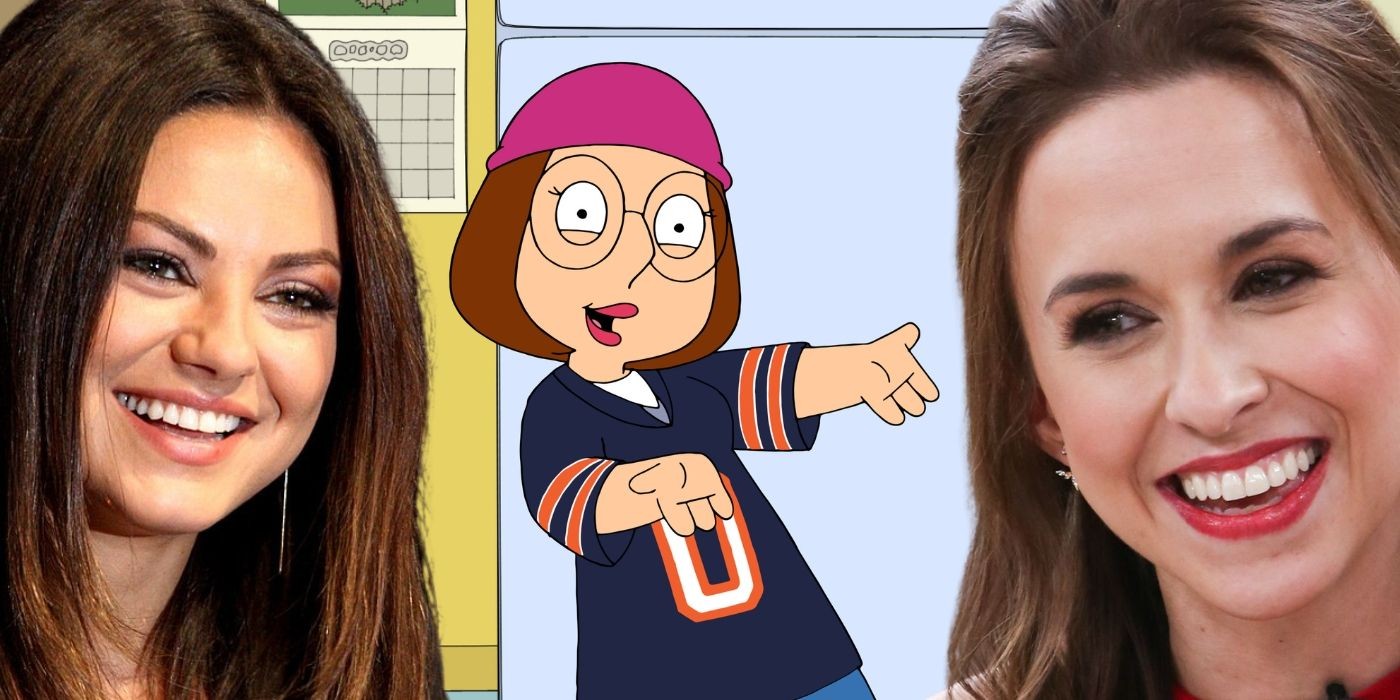It’s a long-running gag woven into the fabric of Family Guy: everyone, and especially Peter Griffin, harbors an inexplicable and often extreme hatred for Meg. From casual dismissals to outright cruel actions, the mistreatment of Meg Griffin is a constant source of dark humor in the animated sitcom. But for viewers new and old, the question remains: Why Does Peter Hate Meg so much? Is there a hidden reason, or is it simply a bizarre and exaggerated joke for comedic effect? Let’s delve into the twisted world of Quahog to understand the roots of this peculiar animosity.
The Unexplained Hatred: It’s Just a Joke
Family Guy is renowned for its irreverent and often boundary-pushing humor. In this context, Meg’s abuse falls squarely into the realm of dark comedy. The show doesn’t offer a concrete, in-universe explanation for why everyone, particularly Peter, despises Meg. There’s no singular event or character flaw that justifies the constant barrage of negativity directed at her. Instead, the joke lies precisely in its absurdity and lack of justification. The humor derives from the extreme and unwarranted nature of the hatred, making it clear that it’s a comedic device rather than a reflection of real-world interpersonal dynamics.
To seek a logical reason for Peter’s animosity towards Meg is to miss the point of Family Guy‘s comedic style. The show thrives on exaggeration and the subversion of typical sitcom tropes. Just as Peter’s epic battles with Ernie the Giant Chicken escalate to ridiculous proportions, so too does the family’s disdain for Meg. It’s a deliberate embrace of the illogical, where the punchline is the sheer senselessness of it all. In the topsy-turvy reality of Quahog, hating Meg is simply part of the established order, a darkly comedic constant.
Meg’s Relatability: The Outsider Perspective
Despite being the target of relentless jokes and abuse, Meg ironically becomes one of the most relatable characters in Family Guy. She embodies the classic outsider archetype, yearning for acceptance and affection within a family that consistently overlooks and mistreats her. This inherent vulnerability and desire to belong resonates with viewers who have ever felt like they didn’t quite fit in or experienced unmerited negativity.
Meg’s character design further enhances this relatability. In a world populated by outlandish personalities and exaggerated features, Meg stands out for her relative normalcy. She’s depicted as an average teenager navigating the typical challenges of adolescence, albeit within the chaotic backdrop of the Griffin household. This contrast between her ordinary struggles and the extraordinary cruelty she faces amplifies the comedic absurdity while simultaneously making her a sympathetic figure. Her only real “crime” in the Family Guy universe is simply being different from the wacky and often self-absorbed personalities around her, making her mistreatment all the more poignant and, in a twisted way, humorous.
 Mila-Kunis-Lacey-Chabert-Meg
Mila-Kunis-Lacey-Chabert-Meg
“Shut Up, Meg!”: The Catchphrase and its Impact
The phrase “Shut up, Meg!” has become synonymous with Family Guy and a cultural touchstone, largely thanks to Peter’s frequent and often aggressive delivery. While seemingly harsh, the catchphrase’s humor stems from the aforementioned absurdity of the Meg hate joke and its unexpected relatability. It’s a comedic shorthand for dismissiveness and unwarranted negativity, amplified by the over-the-top context of the show.
The cultural impact of “Shut up, Meg!” is undeniable. Even Mila Kunis, Meg’s voice actress since season 2, has recounted countless instances of fans shouting the phrase at her in public. While such encounters might sound jarring, Kunis reportedly takes them in stride, recognizing them as a testament to the show’s enduring popularity and the catchphrase’s iconic status. This real-world echo of the fictional abuse highlights the joke’s penetration into popular culture and its ironic appeal.
Meg: Secretly the Funniest Character?
In a surprising twist, Meg’s role as the perpetual punching bag arguably positions her as one of the funniest characters on Family Guy. While the humor is often at her expense, Meg frequently delivers sharp one-liners and provides a grounded perspective amidst the family’s chaotic antics. Her dry wit and sarcastic observations often serve as a comedic counterpoint to the over-the-top personalities of Peter, Stewie, and Brian.
Furthermore, Meg often functions as the voice of reason within the Griffin family, a role that becomes particularly humorous when contrasted with the irrationality of those around her. While Brian is often positioned as the intellectual center, Meg frequently steps in to point out the absurdity of her family’s schemes and behaviors. This unexpected voice of reason, coming from the most mistreated character, adds another layer to the show’s comedic irony. Episodes centered around Meg, such as “Barely Legal” and “Dial Meg For Murder,” are often cited as some of Family Guy‘s most memorable and hilarious, showcasing her unexpected comedic potential.
Origins of the Meg Hate: From Subtle to Extreme
The “everyone hates Meg” joke wasn’t always as pronounced as it is in later seasons of Family Guy. In the show’s early years, the abuse was more subtle, primarily consisting of Peter and other children mocking Meg for being “boring” or unremarkable. In these initial seasons, Meg was portrayed as more conventional compared to her eccentric family, making her the target of lighthearted teasing.
However, the mistreatment of Meg intensified significantly starting around season 4. Cruel jokes about her appearance became more frequent and harsh, marking a turning point in the evolution of the gag. The very first episode of season 1, “Death Has a Shadow,” already hinted at this dynamic with Peter grounding Meg for a minor infraction. By season 4’s “Don’t Make Me Over,” Peter’s outright cruelty towards Meg’s appearance solidified the darker, more extreme version of the joke that would become a hallmark of the series. Even the show itself began to play with the idea that Peter might not be Meg’s biological father, further fueling the narrative of her being an unwanted outsider. Across over 20 seasons, the Meg hate joke has persisted and evolved, solidifying its place as one of Family Guy‘s most enduring and darkly humorous running gags.
